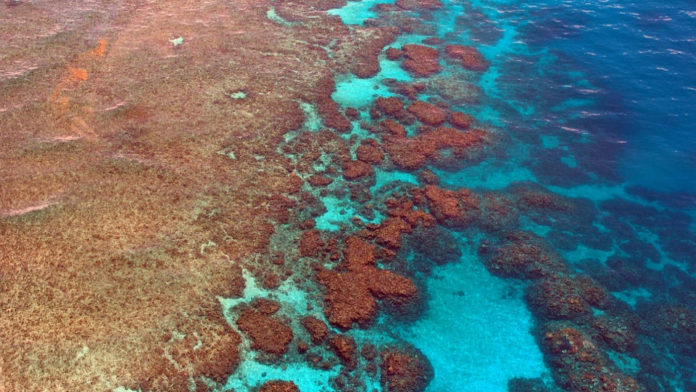New Delhi (NVI): The Great Barrier Reef, off the coast of Australia, has lost more than half of its corals since 1995, due to climate crisis, according to a new study.
The study, published in the journal Proceedings of the Royal Society B, found all types of corals that had suffered a decline across the world’s largest reef system.
Researchers from the ARC Centre of Excellence for Coral Reef Studies, in Queensland, northeastern Australia, assessed coral communities health and their colony size along the length of the Great Barrier Reef between 1995 and 2017.
They found populations had dropped by more than 50 per cent over the past 25 years in all coral sizes and species, but especially in branching and table-shaped corals. These are the large, structural species which usually provide habitats for fish and other marine life, the researchers said.
However, the steepest falls came after mass bleaching events in 2016 and 2017, these were the worst affected by record-breaking temperatures, while more mass bleaching occurred this year.
Professor Terry Hughes, a study co-author, said these coral types had been worst affected by the back-to-back mass bleachings which damaged two-thirds of the reef.
Bleaching occurs when corals under stress drive out the algae – known as zooxanthellae – that give them colour, while corals can recover if normal conditions return, but it can take decades, Hughes added.
Andy Dietze, the lead author said, “A vibrant coral population has millions of small, baby corals, as well as many large ones.”
“Our results show the ability of the Great Barrier Reef to recover – its resilience – is compromised compared to the past, because there are fewer babies, and fewer large breeding adults, he added.
Hughes also said that we used to think the Great Barrier Reef is protected by its sheer size – but our results show that even the world’s largest and relatively well-protected reef system is increasingly compromised and in decline.
Furthermore, the researchers said that the climate crisis is driving an increase in the frequency of reef disturbances such as marine heatwaves.
This study records steeper deteriorations of coral colonies in the Northern and Central Great Barrier Reef after the mass coral bleaching events in 2016 and 2017. And the southern part of the reef was also exposed to record-breaking temperatures in early 2020.
“There is no time to lose, we must sharply decrease greenhouse gas emissions ASAP,” the authors conclude.
Meanwhile, the global temperatures have already risen by about 1°C since pre-industrial times. The United Nations has warned that if that rise reaches 1.5°C, 90 per cent of the world’s corals will be wiped out, as per the reports.
-RJV








